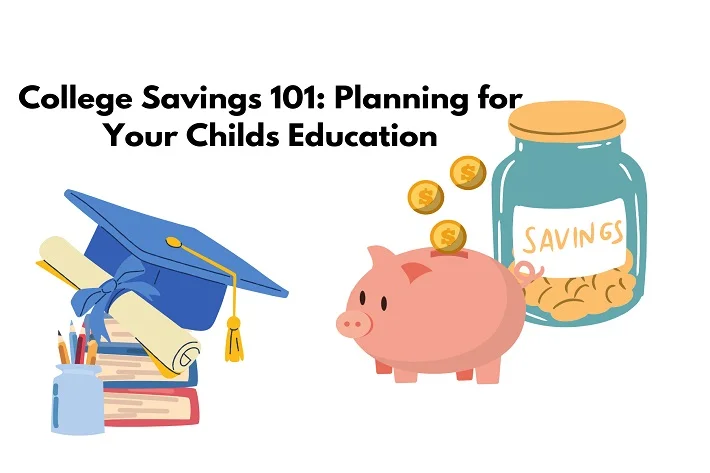Investing is simple, but only if you have the right information combined with good guidance and wit! We all undoubtedly have the brains required for investing tips, now all you need is the information and guidance.
No more fear, as we bring to you, the best of tips to guide you here!
Also read: Top 6 Benefits Of Investing In Real Estate
5 Investing Tips for Beginners
1. Invest as Early as Possible- The Magic of Compounding
“Compound interest is the eighth wonder of the world. He who understands it earns it… he who doesn’t… pays it.” – Albert Einstein
As a beginner, always remember that the magical power of compounding only works when you start early. You may think this has been said enough, but it is extremely important to invest early if you are looking to make good money from your investments. The logic is really simple. When you put in some money as your investment, you earn interest. The interest is calculated regularly on the principal amount plus the past interest earned. So the longer you invest it, the more you will earn!
Don’t wait any longer, go ahead and get your money rolling right now!
2. Long-term is the way to go
Though the word ‘long term’ might trigger you a little bit, it goes a long way in terms of returns. Investors who play the game for longer, tend to make much more money than the ones who are in it for the quick gains. It is a common misbelief that investment is meant for quick money. The only people who make any real money from investing are the ones who are patient. A beginner must especially remember this little tip.
Stay patient and reap the fruits slowly but in plenty!
3. Don’t Speculate
Who doesn’t love a little speculation, you may think? But think twice. We are all social beings and tend to form our conclusions about things based on what we hear or see. We may not necessarily understand it. But beware! Getting guidance is a great idea, but don’t blindly follow a friend’s or relative’s advice. Always do your research. Sometimes things that work for one, may not work for the other. You could end up incurring more losses than gains if you do so.
The one thing that every first-time investor must do before investing is to do their background research. Get multiple opinions, but always base your decision on your research. You could also choose to go through a reputed and trusted agency/broker when you begin.
Bring out the Sherlock in you, and investigate all your options thoroughly before you jump in!
4. Don’t Get Emotional
This mainly refers to being able to stay calm and composed regardless of the market situation. A share market is a volatile place, and there will be ups and downs. When you are a new investor remember that a crash in the market is not the worst thing in the world. Some of the best companies in the world have even begun functioning during the recession. So your little investment will be fine too if you just keep your cool! Never panic and jump to conclusions!
Stay calm stay invested, and watch your wealth grow!
5. Avoid Trading
Contrary to popular belief, trading isn’t the best way to make more money. While it is one way to earn some money in the stock market, it’s not the smartest way. As already mentioned, those who are in it, in the long run, are the real winners. When you begin investing, opt for modes of investment such as mutual funds or even micro-investing. These forms of investing reduce your risks as a beginner. Investments made for longer periods will give you better returns than constantly buying and selling. It only results in more work and less pay!
Stop trading, and start investing!
How Much To Invest?
When you invest, you are often in a dilemma about how much needs to be invested. Here are a few tips to help you remember when you make the decision:
1. Build an Emergency Fund
The first step in personal finance is to build an emergency fund. An emergency fund is simply money that will help you pay off unforeseen emergencies. About three months’ worth of income should be a good amount to start with. It should ideally be in the form of cash or other easily accessible forms. It’s meant to serve you during emergencies. Remember, you build an emergency fund even before you start investing.
2. Pay off Debts
Once you have your emergency fund set aside, your next priority should be to pay off any debts you may have accumulated. It could be credit card bills, the money you borrowed from your friend, student loans, etc. You do not want your debts looming over your head in the future!
3. Use the 50-30-20 Rule
After you build an emergency fund and pay off your debt, you then can use the 50-30-20 rule to set aside the money you need for investing. This means 50% of your income is used to pay off your needs or expenses, 30% for your wants, and 20% goes into savings or investments.
4. Start with a SIP
After you decide the amount you want to invest, you can begin with a Systematic Investment Plan(SIP). A SIP is a method of investing in which you invest a fixed amount of money at predefined intervals in a mutual fund.
Where to Invest?
Once you figure out how much you can invest, here are a few beginner-friendly investment options for you to consider:
Also read: How To Invest Online In Direct Mutual Funds
1. Mutual Funds
Mutual Funds is a professionally managed fund, where several investors pool in their money. The money is further used to purchase securities such as stocks, bonds, and other forms of financial instruments in the market. A mutual fund is a great place for beginners to start with. It allows you to obtain a range of different securities, which are handled by a fund manager, which reduces your risk and effort. It’s also considered beneficial because it diversifies your portfolio and minimizes the impact of your loss, if any, thereby diluting your risk further.
How Many Returns Do I Expect?
There are several different types of mutual funds such as equity funds, liquid funds, debt funds, etc. The returns from each of these funds vary. Some of them might give you high returns but they might be more risky and vice versa.
What do I Select?
It’s important to do a risk assessment and define your goal before you select the type of mutual fund. This process is generally done with the help of a financial advisor. As a beginner, it can be challenging to select the right type of mutual fund. Most of the funds underperform the stock market and without the help of an expert, it can be challenging to select the right type of mutual fund. In such scenarios, you can select an Index fund.
Also read: How To Invest In Nifty Index Fund Directly
2. Index Funds
Index funds are a type of mutual fund that tracks the performance of a particular index like the NIFTY 50 or SENSEX. These index funds give a return that’s very similar to the index such as Nifty 50 or SENSEX.
As the index fund tracks the market, by selecting it you de-risk yourself from underperforming the market. The NIFTY has given an annualized return of around 12.5% in the last 15 years. This is comparatively high compared to a lot of other mutual funds. Hence, an index fund is a great choice for beginners who don’t know what to select and don’t have a personal financial advisor.
Can we Invest in Stocks Directly?
As a beginner, it’s recommended that you avoid buying stocks. Firstly, buying a stock requires a quantitative and qualitative analysis of the company. As a beginner, it is generally difficult to perform a good fundamental analysis. Second, diversification is essential to lower your chances of losing your money. By selecting stocks, the amount of money we’ll need to diversify is significantly higher than the amount of money required in a mutual fund. In a mutual fund you can invest as little as Rs. 500, this money then gets diversified into multiple stocks. Hence, avoid stocks as much as you can.
3. Micro-Investing
Micro-investing refers to depositing, saving, and investing in small amounts regularly, instead of bigger sums. This translates to reduced risk and small yet consistent returns. It’s a simple and easy method for a new investor to follow. Micro-investing is exactly like regular investing, except that it is accessible to everyone! You could invest minimal amounts with the help of micro-investing platforms, and make good money!
What Do I Need to Invest?
Investing doesn’t require a lot of fieldwork, unlike popular opinion. You are just a few steps away from doubling your wealth:
- Obtain a PAN card.
- Open a bank account.
- Pick a broker or a website – ScrippBox, Grooww, RoundUps, etc.
- Complete KYC ( Know Your Customer)
- Begin investing!
As a beginner, don’t let others tell you that investing is difficult or risky. There are no success stories without risk and failure! There are absolutely no shortcuts to earning money. Everything takes time and effort. After all, as the famous proverb says – No pain, no gain!

















